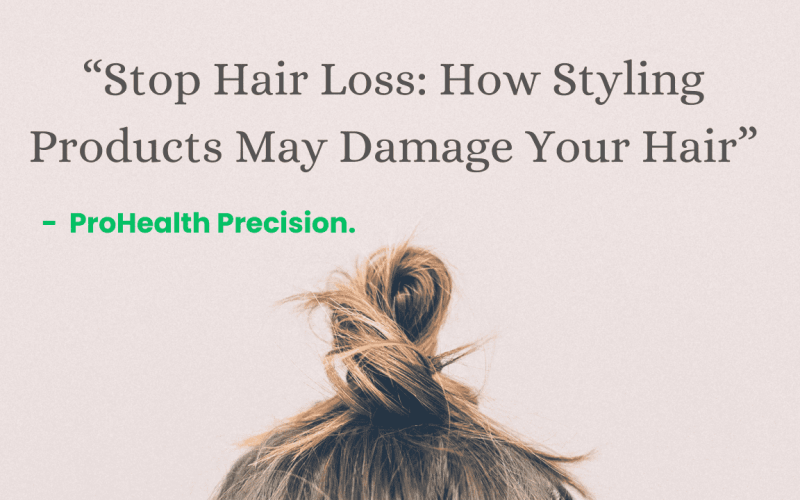In the quest for the perfect hairstyle, many of us rely on a variety of styling products. However, what if the very products designed to enhance your hair’s appearance are actually contributing to its demise? This article delves into how some popular styling products may be accelerating hair loss and what you can do to mitigate this distressing effect.
The Silent Culprit Behind Hair Loss
Hair loss can stem from various factors including genetics, diet, stress, and health conditions. Yet, an often overlooked cause is the prolonged use of certain hair styling products. From gels and waxes to sprays and serums, these formulations may contain chemicals that, while great for short-term aesthetics, can lead to long-term damage to your hair follicles.Unpacking the Harmful Ingredients
Many hair products contain harsh chemicals that strip away natural oils and weaken hair strands. Substances such as sulfates, parabens, and phthalates are notorious for their adverse effects. Sulfates, for instance, are effective cleansers but are so harsh they can remove essential oils and weaken your hair’s natural defense against external damage. Parabens, used as preservatives, can disrupt hormonal balance which is crucial for hair growth. Phthalates, often found in fragranced products, can similarly interfere with hormonal health.Recognizing the Signs of Damage
The first step in combating the harmful effects of styling products is recognizing the signs of damage. If you notice excessive hair shedding, thinning, or a receding hairline, it might be time to reconsider your product choices. Scalp irritation, dryness, and flakiness are additional red flags that your styling products may not be as hair-friendly as you thought.Transitioning to Hair-Friendly Alternatives
Switching to safer, more hair-friendly products is not just a good practice—it’s vital for maintaining the long-term health of your hair. When shopping for hair care products, prioritize those labeled as sulfate-free and paraben-free. Sulfates, while effective at cleaning, can strip away natural oils that protect and nourish your hair. Parabens, on the other hand, can disrupt endocrine function, potentially leading to hair thinning. Additionally, seek out products free from synthetic fragrances and alcohol, which can dry out your scalp and hair. Opting for products enriched with natural ingredients like aloe vera, tea tree oil, and argan oil can further enhance the health and appearance of your hair, providing essential nutrients and moisture without harsh chemical additives.Implementing Protective Hair Care Practices
Adopting protective hair care practices is crucial for minimizing damage and preserving hair integrity. First and foremost, reduce the frequency and intensity of heat styling. High temperatures can weaken hair strands, making them more susceptible to breakage. Explore styling alternatives that do not require heat, such as braiding, which can also help in managing hair without tugging or pulling. Additionally, using soft hair ties or clips can prevent damage during everyday styling. Regular trims are another essential aspect of hair care, helping to eliminate split ends and maintain healthy hair. Combining these practices with the use of protective products, such as heat protectant sprays or natural oils before styling, can significantly reduce hair damage over time.Nourishing From Within
Effective hair care extends beyond external treatments to include what you put inside your body. A nutrient-rich diet is fundamental to hair health, providing the building blocks for strong, vibrant hair. Ensure your diet includes adequate protein sources such as lean meats, fish, and legumes, as hair is primarily composed of protein. Omega-3 fatty acids, found in fish like salmon and seeds such as flaxseeds, are vital for maintaining scalp health and ensuring your hair stays hydrated and lustrous. Iron-rich foods like spinach and red meat can boost follicle health and improve circulation, promoting hair growth. Vitamins A, C, and E play critical roles in protecting hair from environmental damage and bolstering its texture and growth. By integrating these nutrients into your daily diet, you can significantly enhance both hair growth and its overall health.Conclusion
While styling products are invaluable tools for achieving the perfect look, their long-term effects on hair health cannot be ignored. By being informed about the potential harms of certain ingredients and adopting healthier hair care practices, you can protect your hair from premature loss due to styling products. Embrace this dual approach—where style meets substance—to ensure your locks remain as healthy as they are stylish. This balance not only enhances your appearance but also sustains the integrity of your hair over time.





